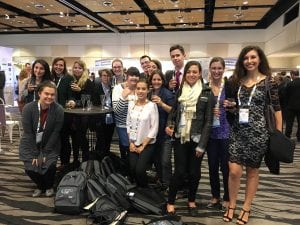Top 8 things to make the most of your MSc year
By Ruth M Morgan, on 8 November 2016
We have arrived at reading week after a busy start to the academic year, and there is still a lot of (nervous) energy in the university. So to add into the mix, here are 8 thoughts (in no particular order) for making the most of your MSc year:
- Think before you read
Always think what the question is actually asking before reaching for the reading list. If you can work out what the question is asking, you can work out what a good answer to the question is. Then you can decide what theories, context, facts and examples you need to make a compelling argument that answers the question. That will mean you can read in a focused and strategic way – you will know when an article is going to help you answer the question, and when it is dealing with a concept or issue that is a side issue for your assignment.
- Read widely
Strategic reading is a great skill, but also make the time to read widely. An article may not be dealing with precisely the topic you are addressing for an assignment, but it is likely to have insights into related topics that build the bigger picture or offer context to the topic you are dealing with. It is also likely that it will provide a window onto methods, schools of thought, ways of presenting results and approaches for drawing inferences that will be valuable in your current, or future assignments.
- Work together
In an interdisciplinary subject, always value insights and approaches from your colleagues that come from different disciplines to you. You have an incredible resource in your cohort, contribute to it, absorb it and value it.
- Never be afraid to ask a question
If you are thinking it, it is likely that someone else is too. Asking questions is the beginning of discoveries, and not asking questions can limit your vision of a topic.
- Always ask ‘so what’
If you can answer the ‘so what’ question you have made a good and compelling case. Justifying your answer is a critical part of giving a strong answer to a question, and part of that justification is explaining why the reader should sit up and listen, why this matters.
- Plan! (your diary)
It’s not glamorous but make sure you know when (and where) your lectures are and when your assignments are due in. You will often have long deadlines for assignments, so don’t wait for the time pressure to bite, plan your work schedule, and build in time for contingencies. Also build in time for editing, formatting, the computer to glitch, the train strike…
- Plan! (your work)
At the smaller scale, always plan your essays before you start writing – a plan will make sure you have a logical and structured answer, and it will make sure that you only write the number of words you have in the word limit. Cutting large swathes of words is time consuming!
- Take every opportunity to meet people
You never know who you will meet at an event, you never know where your future will take you. Knowing people who have experience in the field and who have expertise in particular areas is one of the best ways for working out where you want to go next. There is no better way of knowing what opportunities are out there, where your skills could be applied, and what you are interested in.
 Close
Close





